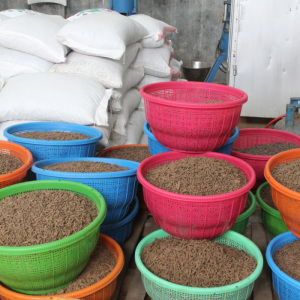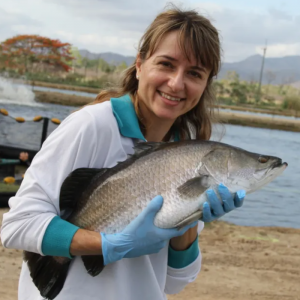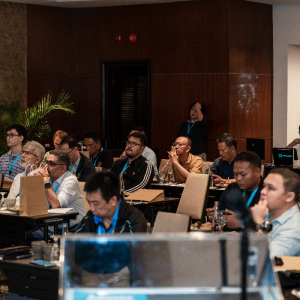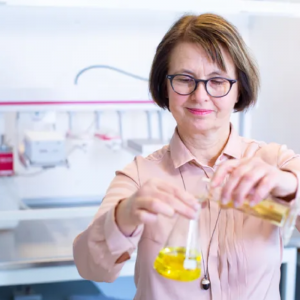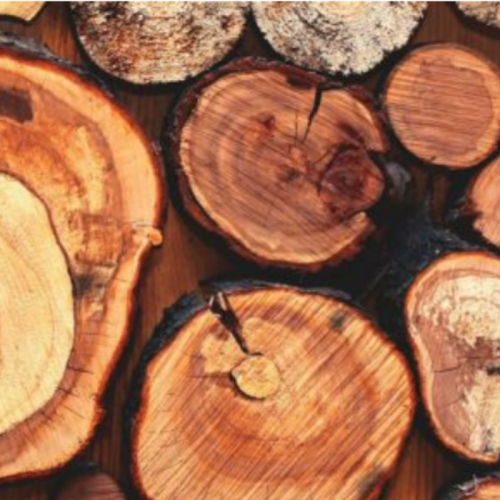
Wood to Feed Ingredient Maker Arbiom Sees Positive Results in Fish Trials
| Wed, 11 Sep 2019 - 11:55
A US firm has big plans to turn waste from wood processing into a sustainable fishmeal alternative and says its initial trials are showing promising results.
Ricardo Ekmay, vice president of nutrition for Durham, North Carolina-based Arbiom, told Undercurrent News that his company's "wood to feed" platform is emerging as a strong contender among fishmeal alternatives, a growing suite of protein-rich replacements made from single-cell proteins, insects, food processing wastewater and other technologies.
A major advantage of using waste wood collected from the pulp and paper industry -- material that is usually burned presently -- is that the supply chain is well developed and stocks are plentiful, he said. That will eventually mean lower production costs for its SylPro feed ingredient, which is made from a single-cell yeast that feeds on sugars derived from the wood.
“We are sensitive that we need to be at a specific price point to be competitive to other protein ingredients," he said. "Our economics are built on being competitive with existing feed ingredients without necessarily having to be at a premium.”
Feed makers need both scale and consistency and, as a feedstock, waste wood delivers both, said Ekmay, who received his doctorate in poultry science from the University of Arkansas before working for Dow AgroSciences, which was spun off and is now known as Corteva Agriscience.
“When you’re trying to source methane or other waste products, having a consistent, reliable supply, especially at the volumes that are required to operate within the animal feed industry, those are significant,” he said adding that supply inputs have been one of the largest limitations of organic waste products to date.
“There’s been a large push to feed waste to insects. Getting a consistent supply of consistent composition becomes a large hurdle,” he said.
Arbiom began life as a contract research organization, he said. It has developed extensive expertise in "biomass fractionation", the process of breaking down the wood into a slurry containing carbon components and sugars, which are then fermented.
The fermented sugars are then food for torula yeast, which becomes the protein used as a fishmeal alternative. Torula yeast is already widely used as a food additive.
“There’s no regulatory or safety issues there. It actually has an extensive history of safety so there’s less of an adoption curve,” Ekmay said.
Achieving scale
In preparation to commercialize its products, Arbiom is currently working with researchers at the US' Texas A&M University and Iceland's Matis research institute on a series of feed trials which will feature carnivorous fish such as salmon or trout. INRA (Institut national de la recherche agronomique) in France will also be running a trout study.
“The animal feed industry is a very data-driven industry. To be able to enter the space you need to show efficacy in the target species and develop a robust data package supporting that,“ Ekmay said.
Recent trials in Texas showed good results for hybrid striped bass fed a diet that included the company's feed ingredient.
“Ultimately the take-home message is that this ingredient is highly digestible, which is a critical criterion for sustainable animal nutrition. So we have a very high, 97% digestibility for our protein,” Ekmay said.
The company, which is leading the European Union-backed consortium Sylfeed, is able to incorporate it into feed in quantities of up to 20%, replacing fishmeal and plant proteins, he added.
On Aug. 28, announced that it was welcoming two new partners to the consortium: BioProcess Pilot Facility, in Delft, The Netherlands, and Bio Base Europe Pilot Plant (BBEU), based in Ghent, Belgium. The addition brings the number of organizations involved to 10.
-225x300.jpg)
While not yet a commercialized product, research is “sufficiently advanced” so that Arbiom is working with customers to produce large volumes to do further internal feed trials.
“We’re in the process of upscaling the technology, producing tonnage quantities so customers or other partners can evaluate this product internally and then we can go from there," he said.
Arbiom plans to continue a battery of trials for several species in 2019 and 2020 and is looking for partners to “upscale” the technology and is planning demonstrations of the technology with the hopes of building a commercial-scale facility in the next two to three years.
He said that the company's biomass fractionation knowledge is a key asset.
“There are technologies out there that fractionate wood already. What we’re able to do is we’ve got a technology that does it more efficiently and feeds into fermentation at a much more efficient, economic level,” he said.
Source : Undercurrent News













